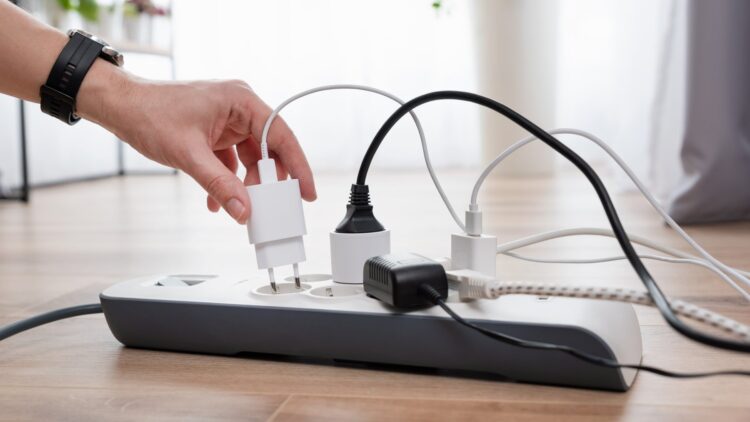Going on vacation can be a very relaxing experience, but in order to make it so, we have to add a few things to our plate so that when we go away we can do so with a clear conscience and we can come back without any issues, and one of the main things that we can do is to unplug our appliances and turn off our breakers. This will not just save us money, but it may also protect our home from an electrical fire.
Although this is less common nowadays because of how efficient our appliances are, there is such a thing as phantom use of electricity, and this comes from things being plugged in when not in use. There are a lot of things that we have plugged into the electric grid that consume a marginal amount of electricity that truly does go unnoticed unless you are tracking every single outlet and every single voltage that comes out of our pocket, but most regular people are not doing this for their day to day life and thus tend to forget even while they are away.
What you should unplug when going on vacation
While just turning out the main breaker for your home may seem tempting, there are some things that you may not want to unplug, and that is your fridge and your freezer. Unless they are empty, you might want to keep some food in there for when you come back. These two appliances are some of the most consistently expensive, as they are running all the time, but if you are stocked full of food that you keep there, do bear in ming that most of the energy is consumed wen you open and close the doors and the appliances have to work to regain the set temperature again.
As long as you do not open the doors to the fridge or freezer, the internal temperature should not go down a lot, especially if they are full and there are things inside that are cold and help retain some of the cool temperature. The cost to run it while on vacation should be fairly negligible, but you can consider unplugging them if you are going away for more than a week and are willing to fully restock upon arrival.
With the most inconvenient appliances out of the way, you should consider unplugging every charger that you have in your home, be it busy with a light or an empty cord. While these do not usually have electricity running through them when not in use, any electrical malfunction can cause a fire to spark, and these are very clear points in which it would start.
The main thing to remember to unplug is anything with a light or a clock, like a TV that has a pilot light indicating is on, a microwave with an LED clock, your alarm that has a display, all those small appliances that are technically off but you only need to press a button and they spring to life. These are all small expenses that do not matter but they can add up and at the end of the month can amount to about $20, which is not much if you are using them, but it is a lot if you are gone and they are just “on” for no reason.
Some other tips to save energy while on vacation are:
- Use power strips with switches to group multiple devices together. This way you can easily unplug them all and you will be able to plug them all at the same time when you get back.
- Turn off or lower your thermostat if no one will be home. In the summer, a central air conditioner can consume several dollars a day, but do consider other factors like pets when you do this.
- Disable your Wi-Fi router if you do not use connected security cameras. Modems and routers can consume up to $5 a month if they remain on constantly.
- Close curtains or blinds to prevent the sun from overheating your home, reducing the need for automatic cooling.
- Consider using a timer for outdoor lights instead of leaving them on all the time. This saves energy and gives the impression that someone is home.

